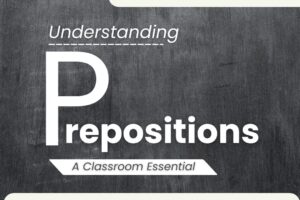
A widely accepted exam of English language competency, the International English Language Testing System (IELTS) opens up a world of opportunities for anyone looking to study, work, or immigrate to English-speaking nations. Now, alongside the IELTS, the Duolingo English Test (DET) offers a convenient and accessible alternative. A strong score on either the IELTS or DET can be the key to realizing your dreams of going to a prominent university for further education, improving your job opportunities in a global corporation, or beginning a new life overseas.
What is the IELTS?
The Listening, Reading, Writing, and Speaking sections of the IELTS are meant to evaluate non-native speakers of English in these four critical domains. While IELTS is a bit different from TOEFL in format and purpose, both tests assess English proficiency. All test-takers are guaranteed fairness and consistency because the IELTS test format is standardized and administered on a predetermined date every month.
- Listening: This section assesses your ability to comprehend spoken English. It is comparable to listening to a dialogue or a story.
- Reading: Here, you will read passages written in English, such as a narrative or a letter. Next, you respond to questions pertaining to the readings.
- Writing: You will be writing in English in this section. Perhaps a brief essay or a letter.
- Speaking: Think of this as a quick conversation with someone. They assess your English-speaking proficiency.
Formats for the IELTS Exam
There are two main IELTS test formats: academic and general training. The Academic module is primarily intended for individuals aiming to pursue undergraduate or postgraduate studies at universities where English is the primary language of instruction. The General Training module caters to those seeking to work, migrate, or train in English-speaking countries or who require proof of English proficiency for other purposes.
- Academic Test Format: The IELTS Academic test assesses your English skills for success in university studies. It consists of four parts: Listening, Reading, Writing, and Speaking. All four are completed in under three hours, with Listening and Reading often done together on the test day. Listening involves short recordings of everyday and academic situations. Reading features three lengthy academic passages with comprehension questions. Writing requires you to analyze information (Task 1) and write an essay (Task 2). The Speaking test is a face-to-face conversation about familiar and academic topics.
- General Training Test Format: Designed for immigration and work settings, the IELTS General Training test assesses English used in everyday life. Across four modules (Listening, Reading, Writing, and Speaking) completed in under three hours, you’ll encounter practical scenarios. In Listening, expect conversations and announcements. Reading features work-related documents and everyday notices. Writing involves tasks like composing a letter (Task 1) and expressing an opinion (Task 2). The Speaking test is a conversation about familiar topics and work-related situations.
Difference Between IELTS Academic and General Training Test Format
The key difference between IELTS Academic and General Training lies in the Reading and Writing sections. Academics focus on university-level topics and require analyzing data (Task 1) and writing analytical essays (Task 2). General Training uses everyday scenarios. You’ll write practical letters (Task 1) and express opinions (Task 2). Listening and Speaking are the same, testing your ability to handle conversations in both academic and everyday settings.
What are the Benefits of Taking the IELTS?
Earning a good score on the IELTS comes with a plethora of advantages, including:
- Globally Accepted: Accepted by more than 12,000 institutions, companies, and immigration officials worldwide, including those in the UK, Canada, Australia, and New Zealand.
- Pathway to Education: A strong IELTS score can be your key to unlocking doors to prestigious universities worldwide, allowing you to pursue your academic goals in an English-speaking environment.
- Career Catalyst: Enhance your career prospects by showcasing your English language proficiency to potential employers, potentially opening doors to better job opportunities and higher salaries.
- Crucial for Visas and Immigration: Meeting the English language requirements for migration purposes in many countries makes the IELTS a crucial step for individuals seeking to live and work abroad.
- Enhanced Communication Skills: The preparation process for the IELTS itself significantly improves your English language skills in all four areas: listening, reading, writing, and speaking.
- Cultural Enrichment: By demonstrating your English proficiency, you gain the ability to connect and engage with a wider range of people and cultures, enriching your personal and professional life.
- Personal Growth Odyssey: The journey of preparing for and taking the IELTS can be a rewarding experience, boosting your confidence and self-belief in your ability to learn and achieve your goals.
- Two Test Options: Choose between the Academic and General Training versions of the IELTS, depending on your specific needs and goals, whether for academic pursuits or professional and migration purposes.
- Flexible Test Format: The IELTS offers both computer-delivered and paper-based test formats, allowing you to choose the option that best suits your learning style and preferences.
- Fast Results: Receive your IELTS test results within 3-5 business days, allowing you to use your score for your intended purposes quickly.
By taking the IELTS, you invest in your future, opening doors to exciting educational, professional, and personal opportunities.
How to Prepare for the IELTS?
If you are aiming to conquer the IELTS test and unlock a world of possibilities, then here are comprehensive steps to prepare you for success in all four sections: listening, reading, writing, and speaking. Let’s explore!
- Familiarize Yourself with the Test Format: Understand the types of questions and tasks included in each section of the IELTS for both the Academic and General Training modules.
- Develop a Study Plan: Create a personalized study schedule that allocates sufficient time for each skill area, considering your current level and desired score.
- Utilize High-Quality Learning Materials: Invest in reliable resources like official IELTS practice tests, study guides, and online courses tailored to the specific test format.
- Immerse Yourself in English: Surround yourself with the English language as much as possible by reading English newspapers and magazines, watching English-language movies and TV shows, and listening to English podcasts and audiobooks.
- Practice Speaking English: Participate in conversation groups or online platforms where you can interact with native speakers and practice your conversational skills.
- Seek Professional Guidance: Consider enrolling in an IELTS preparation course or seeking assistance from experienced tutors who can provide personalized feedback and support.
By incorporating these IELTS vocabulary words and following these steps, you can approach your IELTS preparation with a strategic and well-rounded plan, maximizing your chances of achieving your desired score.
Conclusion
The IELTS presents itself as a valuable investment for individuals seeking to unlock a world of opportunities. By taking the initiative to prepare for the test and achieve a good score, you can pave the way for a brighter future filled with academic, professional, and personal growth in an increasingly interconnected world.








